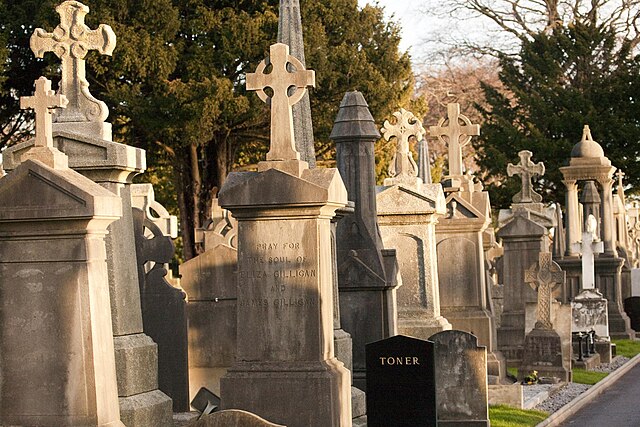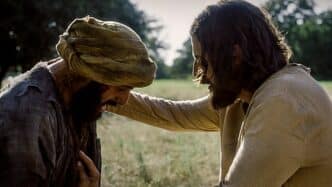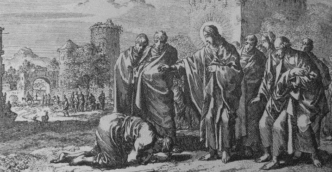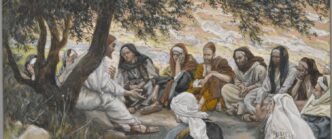The truth Catholics celebrate
Forese had not been dead that long, not even five years. That’s why Dante wondered how he’d made so much progress. An old friend of Dante’s, Forese is found in the Purgatorio, Canto XXIII.
Surprised, as I said, that he had advanced so much in so short a time, Dante asked him, “how did you come so far so fast?” He would have thought he’d find him “down below,” but here he was quite a way up the mountain, well on his way to Paradise. How?
“It is my Nella,” Forese answered. That was Forese’s widow. “With her devoted prayers and with her sighs, she plucked me from the slope where one must wait and freed me from the other circles,” he said. Her prayers were the how and the why of Forese’s progress through Purgatory. Her prayer had helped him on his way.
Now, of course, that’s just a poem, a work of fiction, but it expresses a great truth, the truth we Catholics celebrate each year on All Souls Day.
Prayers for the dead
Falling on a Sunday this year, All Souls Day takes precedent. The church will not celebrate the 31st Sunday in Ordinary Time but instead the Commemoration of All the Faithful Departed.
A medieval feast in origin, at least as it’s still celebrated today, when you go to Mass on Sunday, the prayers, the homily, the music will all lean into the truth Dante was getting at in the Purgatorio, the idea that we all are connected, even the living to the dead, the notion that we are bound together in a communion of charity and prayer.
| November 2, 2025 – All Souls Day |
|---|
| Wis 3:1-9 Ps 23:1-3a, 3b-4, 5, 6 Rom 5:5-11 OR Rom 6:3-9 Jn 6:37-40 |
“Not small is the authority … of the whole Church,” St. Augustine wrote, “that in the prayers of the priest which are offered to the Lord God at his altar, the commemoration of the dead also has its place.” Praying for the dead is something Christians have always done. St. Monica asked her son for his prayers before she died. “Lay this body anywhere, and take no trouble over it,” she told him. “One thing only do I ask of you, that you remember me at the altar of the Lord wherever you may be.”
Now the theology behind this is simple. We are all born and die in Adam; our common mortal nature, the fact that each of us will die, is humanity’s original democracy. Yet for those who believe in Christ, in what St. Paul called the “last Adam,” there is another death, death that is first sacramental and then moral and then natural, but a death that ultimately opens to the resurrection, with believers rising with Christ on an endless Easter morning (1 Cor 15:45).
And, just as in life, we love each other, sharing the goods and graces common to believers, so too may spiritual goods be shared between the living and the dead. These are the prayers we offer for the dead, which are basically a form of love, St. Thomas Aquinas taught, the “bond uniting the members of the Church.” St. Paul VI called this “a supernatural solidarity.”
Again, the idea is simple; it’s that by faith and sacraments, we are truly one in Christ, “a single mystical person,” St. Paul VI said.
To live together in Christ
That’s why we pray for the dead. That’s why, I imagine tenderly, Forese answered, “It is my Nella.” That’s why you should pray for the dead you love and why you should ask your loved ones to pray for you. Because to pray for each other is how we love each other, and we don’t stop loving at death. And it is Christ alone who redeems the love and pain we feel at death from pointless vanity. Instead, he gives it purpose; he uses our prayers to build his eternal kingdom of love, which welcomes all.
This, at least, is how I read the Gospel selected for All Souls Day. This is how I read also the two passages from Romans and the first reading from Wisdom. It is the will of the Father, Jesus says, “that everyone who sees the Son and believes in him may have eternal life” (Jn 6:40). “If then we have died with Christ, we believe that we shall also live with him” (Rom 6:8). In Wisdom it says “the faithful shall abide with him in love” (Wis 3:9).
Everyone, we, the faithful. The point is these are words that include us together, not as lonely individuals but in communion, as friends. That’s the great truth of All Souls Day, the great truth born of the reality of Christ: that we live together in Christ. It’s the truth that our communion with one another never ends, that not even death can break it.
Which is why you should go Mass on All Souls Day with the love of those you’ve lost in your heart. Because in Christ, in prayer, you are very close to them.







